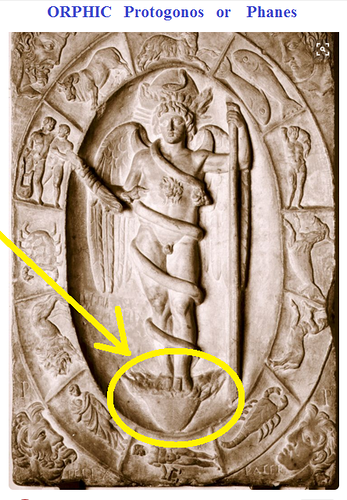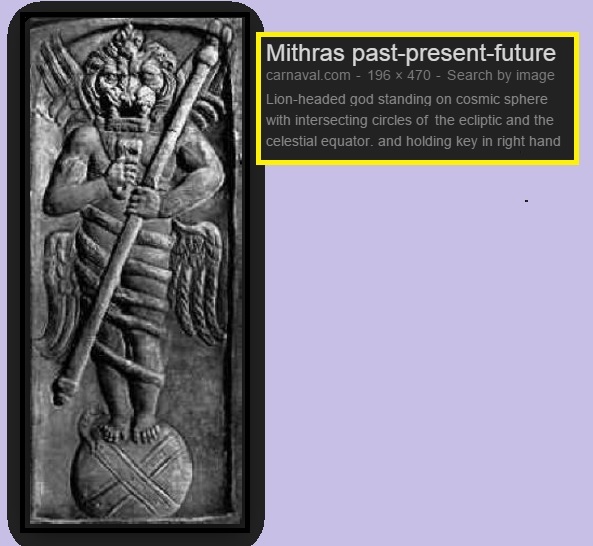My apologies, @Jon_Garvey, for not paying adequate attention to your recent post. I was momentarily distracted by Eddie.
But my response here is actually assisted by Eddie’s comments. Look at Genesis verses 1,2 and 8:
Gen 1:1-2 “In the beginning God created the heaven (“shamayim” / “sky”) and the earth. And the earth was without form, and void; and darkness was upon the face of the deep. And the Spirit of God moved upon the face of the waters.”
Genesis 1:8: Wayyiqra ‘elohim laraqiya’ shamayim… – “And God called the firmament heaven…”
Your theory that the “heavens” is everything above BOTH waters doesn’t appear correct at all. Verse 8 specifies that God called the firmament “Sky” - - or “High Places”, if you like. Using the word Heaven in the mystical sense is a modern abuse of the term.
Since the firmament itself already has its own technical term, the “high places” appear to be a reference to the realm of the Sun, Moon and stars that are AFFIXED to the firmament… This is where God views the earth. When the Stars assist in a battle … they do so by operating the windows of the firmament, allowing the ocean above to pour down below. There is no reference, ANYWHERE, that God’s view is ABOVE the firmament.
Even the Sumerians had notions of gods operating in “the heavens” - - “the High Places” … but other than “living amongst the stars” a more common abode for gods of all kinds was UNDER the earth: the Apsu or Abzu. In Exodus we find God at the top of a flaming mountain … an amplification of the earthly abode (much like the semitic mythologies of EL in general. The bible TELLS US that Yahweh was also called EL.) The Greeks had their Mount Olympus - - again, an amplified EARTHLY abode.
The SKY didn’t become HEAVEN in the modern sense until Zoroaster … with his inventions of
- the Eternal Conflict/Dualism of Good vs. Evil,
- Angels, and
- a Paradise of the Afterlife.
As far as I can tell, the first indication in Greek culture of a God’s viewpoint being OUTSIDE of Space and Time is the Greek Protogonus/Phanes!
"According to the Orphic Creation Myths the creator god. Protogonus was the first god to be born from the Cosmic Egg (World Egg), which Chaos and Aether had reproduced, . Protogonus name means “First Born”, and it was he who had created the universe. Protogonus had three additional names. Protogonus was popularly known by another name as Phanes(Revealer), the golden-winged god of light and love. " [See footnote for translation of an Orphic hymn.]
In the image above he is shown on the cosmic egg surrounded by the zodiac. A similar mythology is invoked in the “new religion” of Mithraism … where a lion-headed deity is shown standing on similar cosmic stone … or a human figure bursting out of the “cosmic egg” - where the egg is wrapped by a ribbon of the zodiac, or a snake that represents the zodiac. Phanes is a clear model being copied.
In such images, Mithras is being presented as the greatest of all gods because, unlike Jupiter/Zeus, who is simply the GREATEST of all the planets, Mithras is believed to be the deity so powerful that he can move the zodiac in a 2,200 year precession. So he must be more powerful than even Zeus, Jupiter or SATURN (the pagan deity most frequently associated with the Hebrew god, and unlike the planetary gods, he exists OUTSIDE of the cosmos so that he can have the leverage to move it.
If someone wants to get extra credit or bonus points, I have not been very successful in identifying the inspiration for the Greek god Protogonos/Phanes. Some Greek gods were inspired by Mesopotamian culture, the Egyptians, or by the Anatolians and presumably by the Persians. But I have not been convinced by anything I’ve read so far about the origins of Phanes.
George
.[Footnote: “Orphic Hymn to Protogonos Upon two-natured, great and ether-tossed Protogonos I call; Born of the egg, delighting in his golden wings, he bellows like a bull, this begetter of blessed gods and mortal men. Erikepaios, seed unforgettable, attend to my rites, Ineffable, hidden, brilliant scion, whose motion is whirring, You scattered the dark mist that lay before your eyes, And, flapping your wings, you whirled about and throughout this world, You brought pure light… . .” ]

